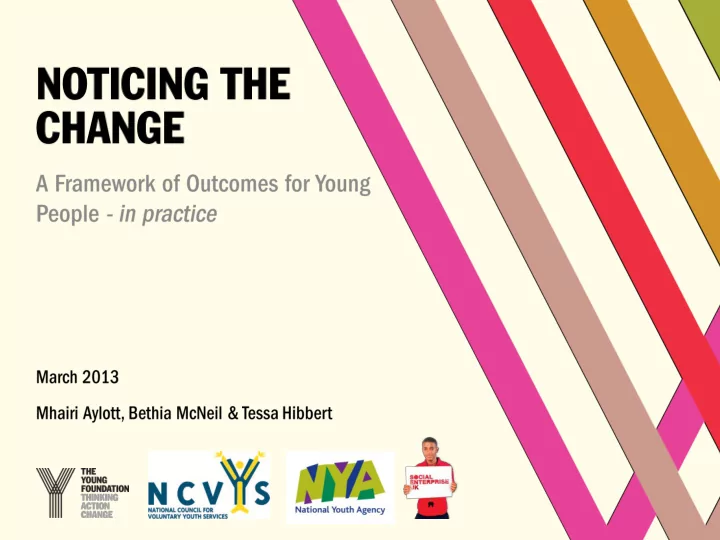

• • • 2
3
4
5
6
7
8
9
• • • • • • 10
11
Increased Protective Personal Factors Intrinsic Outcomes Development (individual well-being) Social Results In Producing Development Extrinsic Outcomes Educational (wider social good) Decreased Development Risk Factors 12
13
14
15
How do I use What resources Where do I go the framework? can I draw on? next? 16
17
18
Step 1. Step 2. Step 3. Evidence base Which What are the (on the What are we clusters relate most relevant connection aiming to most closely outputs and between achieve? to these outcomes? capabilities and outcomes? long term outcomes) Step 6. Step 5. Step 4. What is the What are the best method available and What is the to achieve suitable tools best approach Measures and the desired for assessing to Outcomes outcomes measurement? the and relevant outcomes? capabilities? 20
21
22
Photo credit: Brathay Trust 23
24
25
26
27
28
29
30
31
32
Photo credit: London Youth 33
34
35
36
37
38
• • • • 39
• • • • • • • 40
• • 41
• • • • • 42
• • • 43
• • • • • 44
• • 45
Outcomes based commissioning and funding 46
Measurement 47
“I want to encourage people to see this as a never ending journey. Don’t rush the process as it will take you longer in the long term, but evidence the journey well and share with others so you know what help you need from them. People picking up your work can see its history – the reason for your decisions.” (Gill Allbutt, BRC) 48
• • 49
• 50
• • • 51
• • • • • • 52
• • • • • • • • 53
• • • • • • • • • • 54
Creating a Theory of Change: in 55 Practice
1. 2. 3. 4. 5. 56
• • • • • 57
58
59
Recommend
More recommend